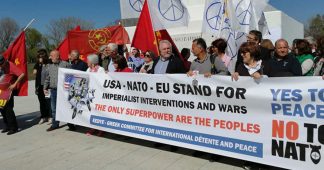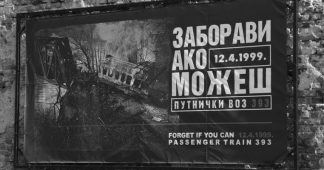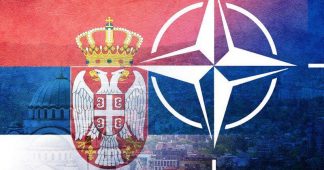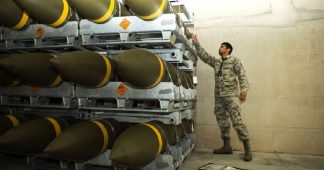20 Jan, 2021
A team of legal experts is set to file the first cases against the NATO alliance on behalf of people who developed cancer after being exposed to depleted uranium munitions during the Serbian bombings in 1999.
The first lawsuit is expected to be filed before the Higher Court in Belgrade on Wednesday, following years of extensive work by a team of legal experts led by lawyer Srdjan Aleksic. Dozens of other lawsuits will be filed before other courts across the country as well. The team is seeking to win compensation of at least €300,000 ($363,500) for each Serbian victim who developed cancer.
“We are talking about the highest courts, to which we will file five lawsuits. The victims are natural persons – deceased and sick soldiers and police officers of the Federal Republic of Yugoslavia, who were in Kosovo in 1999. At the first stage, we want them to be identical cases, as in the Italian military,” Aleksic told Sputnik, referring to hundreds of Italian NATO soldiers who suffered from cancer and other severe conditions after being exposed to depleted uranium (DU) during the alliance’s campaign against Serbia
The first lawsuit is expected to be filed before the Higher Court in Belgrade on Wednesday, following years of extensive work by a team of legal experts led by lawyer Srdjan Aleksic. Dozens of other lawsuits will be filed before other courts across the country as well. The team is seeking to win compensation of at least €300,000 ($363,500) for each Serbian victim who developed cancer.
“We are talking about the highest courts, to which we will file five lawsuits. The victims are natural persons – deceased and sick soldiers and police officers of the Federal Republic of Yugoslavia, who were in Kosovo in 1999. At the first stage, we want them to be identical cases, as in the Italian military,” Aleksic told Sputnik, referring to hundreds of Italian NATO soldiers who suffered from cancer and other severe conditions after being exposed to depleted uranium (DU) during the alliance’s campaign against Serbia
At the same time, the alliance admitted that “in the vicinity of the impact point of DU ammunitions, it is not excluded that individuals unaware of the contamination… could have accumulated radiation doses and/or could have incorporated uranium quantities exceeding the internationally recognized limits.”
The use of DU was also acknowledged by the UN International Criminal Tribunal for the former Yugoslavia, but it said that “there is no specific treaty ban on the use of DU projectiles.”
Published at www.rt.com











